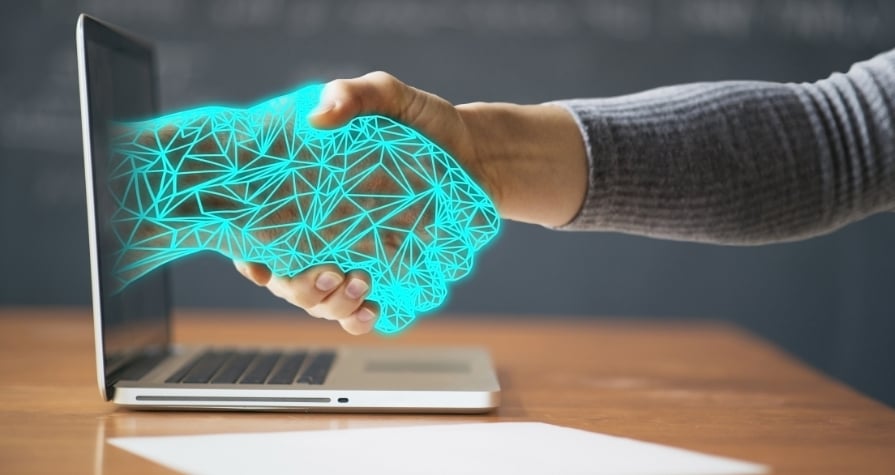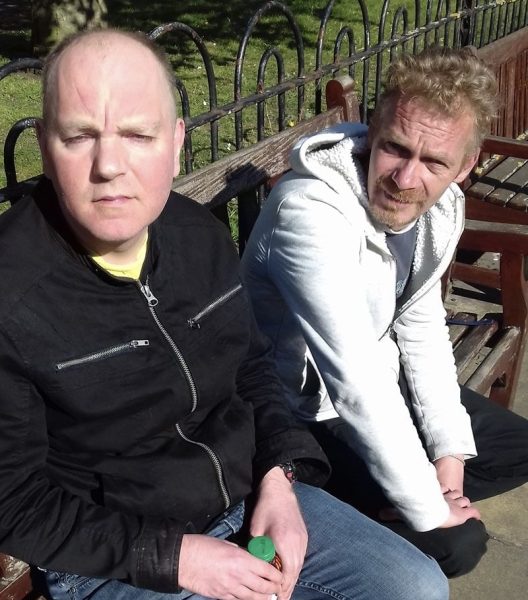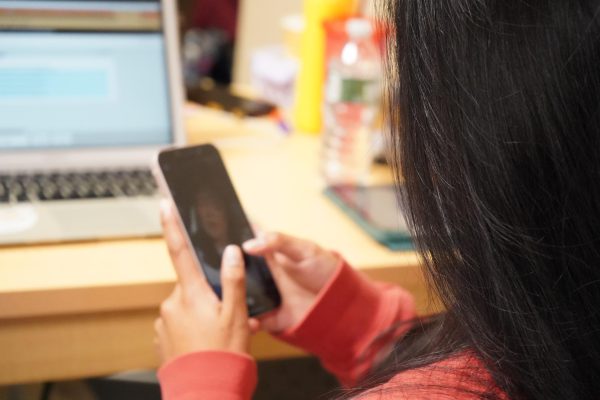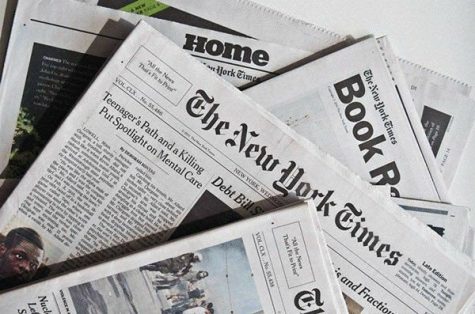Americans Battle With the Concept of New Technology
While technology remains the most vital resource in society, the trust in this asset falters.
The films full of advanced robots and AI computers talking to Americans seem to have finally come to reality. The future of technology is no longer fiction. Instead, it is right next to us – helping people think, walk, and drive.
And it seems although accepted in fictional worlds, these advancements are receiving mixed signals in the real one.
While each day it seems like a breakthrough in technology is made, the public’s views on those society-shifting discoveries are mixed. Many Americans argue that technology is becoming too advanced and may lead to more dangerous problems in the future.
Trust in technology is not a black-or-white metric.
And this conversation has only intensified with the rise of ChatGPT, the latest and most popular artificial intelligence chatbot that is being both praised and feared.
This is further explained by Samir Ibrahim, the Cyberpunk Club Co-President and student at Mercy College when talking about ChatGPT and programs like it.
“Programs like ChatGPT have to be used as a tool, not a crutch. It helps with writer’s block and students struggling to reach their potential, but it is not something to do the work for you as a replacement. It can be considered as Google but better, as it is AI that is trained in how to respond to people.”
Society has evolved to a point where it’s impossible to be a high-functioning member, and not engage with technology in any way. People “need” their phones for daily communication and they “need” their cars for traveling and commuting.
Most schools have evolved to posting assignments online, rendering tablets or laptops an absolute requirement.
But that over-dependence on technology has already in the last decade become an issue. The side effects of the overuse of technology are a growing well-documented phenomenon.
They range from physical, like poor posture and overuse of upper extremities (like arms, wrists, hands, and fingers) to digital eye strain, which impacts vision negatively (like dry eyes or blurred eyesight) if overdone and could cause headaches, and neck/shoulder pain.
These will have to be managed regularly to not have it take a toll on the body over time.
But many still believe the advantages of advanced technology outweigh the potential negatives, however, there are always two sides to a story.
Or to be more specific, it can be considered “a double-edged sword” according to Dr. Zhixiong Chen, a Mercy College professor and the director of the Cyber Education Center, as a part of the Cybersecurity department.
This isn’t inclusive to bigger societal purposes, however, as individuals have to risk assessing their dependency on technology and how they use it. Like anything else, too much or over-reliance on something can be a negative, and even though it has brought people closer online, in real life, some consequences can become more than just minor inconveniences if it is not handled correctly or quickly.
According to Chen, “We get a lot of info from tech, so how can we judge if it is reliable and trusted if it is everywhere? It is not how it used to be, as anyone and everyone can publish anything, with some sort of bias. Students need to think critically and always ask why when looking for resources.”
Psychological problems due to the increased use of tech include affecting sleep patterns like insomnia, addiction to video games and the digital world, making our lives less active overall, and social media being one of the main reasons why cyberbullying and mental health have been epidemics to the youth.
There are even further complications with children, as their undeveloped brains are more sensitive to changes like exposure to screens compared to an adult brain, according to MedicalNewsToday.
And according to a recent study done by Pew Research Center, opinions on technology varied based on the type of technology it was. The study included the views of roughly ten thousand Americans. Facial recognition, with a helpful purpose like aiding police in finding a criminal, was largely viewed as positive. On the other hand, technology like driverless cars, or computer chip implants was viewed as negative on a landslide.
These side effects have impacted how Americans view technology. But how far has that mistrust gone?
Many found that they had enough trust in technology to use it, but when it came to more specific topics like cybersecurity or AI, answers got more blurry.
Not only has technology seeped into daily mundane tasks, but it has also now taken over activities that were once deemed the pinnacle of human achievements, such as the creation of art.
Now, with a few simple clicks, an image that would’ve taken months to complete can be generated in seconds.
A Hudson Yards art gallery showcased a select number of art that was created using or featuring Artificial Intelligence. It ranged from stylistic art to advanced creations. One of which featured a glowing sculpture made of circuit boards taking the form of a human bust.
It even featured a photo booth that immediately altered taken photos into different images depending on a specific prompt given.
Ibrahim spoke heavily about this, saying he likes “the way AI is shaping and the job AI art is competing with are concept artists, as you wouldn’t have to find a concept, you would be able to type it in. It can give you a rough idea of what you are looking for. However, the bad thing about AI art is people pass up AI art as their own, as it is still art but it makes the creators more of wordsmiths rather than actual artists.”
Cybersecurity has also proven to be another gray area.
Fear of being tracked is at an all-time high, yet Americans strongly want foreign and domestic terrorists identified immediately and not have free reign over American systems.
Spyware is another major concern, although most seem not that interested. Social media takes the crown as the area with the most distrust. According to a poll done by the Center for Growth and Opportunity, Tiktok and Facebook were deemed as the most distrusted companies.
And in terms of other potential human job loss due to technology being able to replace them, Ibrahim sees it as “another stepping stone that will take a while in its infancy stage, as it is not ready to take away jobs.”
He then followed up by mentioning that the general public is scared of AI and robots due to “the current economic state of our society, as people see them as losing an opportunity to work due to money focus,” or more specifically asking the question, “Where am I going to make ends meet?”
Samir Ibrahim agrees with this mindset, stating that this revolutionizing tech is a “good idea for the average Joe but when mega corporations start utilizing it, it could start to hamper their livelihoods.”
Digital currency is also another trending topic, as cryptocurrency and NFTs have certainly had ups and downs in their perception. According to Forbes, crypto is one form of online currency among three types, as “Bitcoin was the first cryptocurrency.” NFTs are a “unique digital asset that represents ownership of real-world items like art, video clips, music, and more,” according to Business Insider.
And when asked about their thoughts on digital currency, Professor Chen said “Crypto is more profound and involved with mining, as it is complicated and tech can’t solve that problem alone. People need to be involved, as it is beneficial from a tech perspective but financially, it may not be a good investment.”
While technology may be making some monumental advancements, it’s still struggling to win over the vote of the public. However, even though many still see it as a hindrance to our growth as a species, some see the struggle against technology as inconsequential.
“Technology will always be advancing,” Chen argues, “despite its limitations in capacity, and as it advances, there should be fewer issues…but technology alone can’t solve all problems.”

Diannah Plaisir is currently a senior at Mercy College, pursuing a degree in Media/Communications. Having decided that she was going to be a journalist...
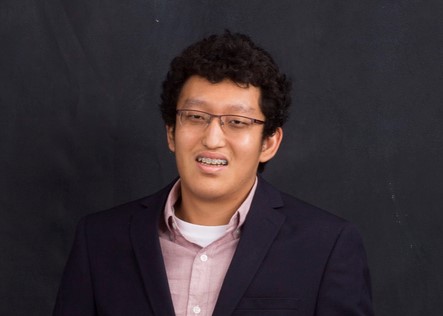
Andrew Kim is a senior majoring in Journalism. Transferring and switching majors a few years ago was a big risk but it has been well worth it so far. Andrew...



